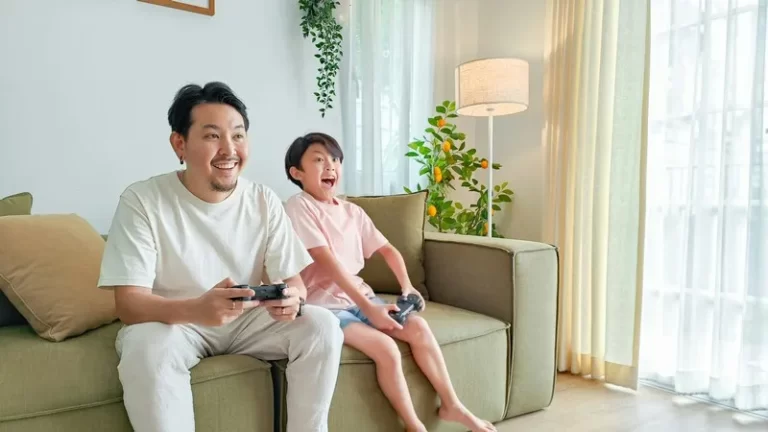Table of Contents
- Introduction
- What Is Social Capital?
- The Rise of Gaming as a Social Practice
- Gaming and the Production of Social Capital
- Gaming Platforms as Social Infrastructures
- Gaming and the Transformation of Friendship
- Gaming and Social Capital Inequality
- The Role of Identity in Gaming Communities
- Conclusion: Reassessing Gaming’s Sociological Significance
Introduction
In the past few decades, video gaming has undergone a radical transformation. What was once dismissed as a solitary, fringe pastime has now become a pervasive and mainstream global cultural phenomenon. Today, an estimated three billion people worldwide identify as gamers. Gaming is no longer confined to specific age groups, socioeconomic classes, or geographic regions; it cuts across demographic boundaries and has redefined the social fabric of contemporary life. This rapid evolution prompts important sociological inquiries into how digital interactions within gaming communities produce new forms of social cohesion, identity, and inequality.
This article explores the complex relationship between gaming and social capital, a foundational concept in sociology that sheds light on how individuals and groups gain access to resources, emotional support, and opportunities through their networks and social ties. Through an analysis of bonding, bridging, and linking social capital, the article offers an in-depth understanding of how digital gaming environments function as arenas of social production, transformation, and stratification.
What Is Social Capital?
Definitions and Forms
Social capital refers to the aggregate of actual or potential resources that accrue to an individual or group by virtue of possessing a durable network of institutionalized relationships. In essence, social capital is about the value embedded in social relationships. Sociologists identify three primary forms of social capital:
- Bonding Social Capital: This form refers to strong, emotionally intensive relationships found among close friends, family, or tightly-knit peer groups. Bonding capital reinforces group solidarity and provides emotional support and protection.
- Bridging Social Capital: Bridging capital links individuals across social divides—ethnic, class, or geographical. These weaker but broader ties often facilitate access to new information and foster inclusive identities.
- Linking Social Capital: Linking capital connects individuals to those in positions of institutional authority and power. These vertical relationships enable access to institutional resources and avenues for upward mobility.
These forms are not mutually exclusive; rather, they interact in dynamic ways across contexts, including within virtual spaces like gaming environments.
The Rise of Gaming as a Social Practice
Gaming has long struggled against stereotypes of anti-social behavior, addiction, and escapism. However, the contemporary gaming landscape tells a more nuanced story. Multiplayer online games (MMOs), real-time strategy games, and co-operative shooters rely heavily on interaction, teamwork, and communication. Meanwhile, platforms like Twitch, Discord, and YouTube Gaming have created new avenues for social engagement, transforming gamers into content creators, influencers, and cultural producers.
Gaming is no longer merely recreational—it is also performative, communicative, and community-oriented. From livestream chats to in-game guild meetings, gaming spaces offer varied social terrains where people engage in negotiation, role-taking, cooperation, and resistance.
Gaming and the Production of Social Capital
Bonding Capital Among Gamers
Gamers frequently develop strong, emotionally charged relationships that are foundational to bonding capital. These ties often emerge through repeated gameplay, collaborative objectives, and emotional highs and lows experienced in shared virtual spaces.
- Friends who game together on a regular basis often evolve into support networks that rival offline friendships.
- MMORPGs (Massively Multiplayer Online Role-Playing Games) such as World of Warcraft and Final Fantasy XIV foster long-term guilds, which operate as tightly-knit communities.
- These groups often support one another beyond the game, including during real-life crises, thereby extending digital relationships into offline solidarity.
Gaming thus becomes a space not only of leisure but of genuine social intimacy, care, and mutual aid.
Bridging Capital Through Diverse Networks
One of the most transformative aspects of digital gaming is its ability to foster bridging social capital. Through gameplay, individuals often encounter people they would never otherwise meet:
- International gaming servers bring together players from disparate cultural and linguistic backgrounds, promoting cross-cultural communication.
- Exposure to diverse perspectives in gaming forums or global tournaments encourages reflexivity and challenges ethnocentric assumptions.
- Players may receive advice, mentorship, or career opportunities from new contacts, enabling social mobility and skill development.
Bridging capital built through gaming can, therefore, serve as a counterbalance to the segmentation of offline social life by race, class, or geography.
Linking Capital in Institutional Contexts
The gamification of institutional life is an emerging trend. From higher education to corporate training, gaming is increasingly integrated into formal settings, creating new pathways to linking capital:
- University eSports leagues connect students with administrators, sponsors, and national organizations.
- Competitive gamers interact with talent scouts, professional teams, and regulatory entities, bridging informal networks with elite institutions.
- Game development communities often include developers, educators, and policymakers, creating hybrid spaces of collaboration and governance.
These interactions illustrate how gaming can serve as a conduit for accessing institutional resources, legitimation, and professionalization.
Gaming Platforms as Social Infrastructures
Gaming platforms are more than technological tools—they are social infrastructures that enable, structure, and constrain interaction. They shape the rules, norms, and affective landscapes of digital sociality.
Discord and Voice Chat
Real-time voice communication fosters immediacy, intimacy, and emotional resonance. Discord has emerged as a critical platform in this regard:
- Communities organize into servers, each with specialized channels for discussion, gameplay, and social bonding.
- Voice channels enhance collaboration and problem-solving in team-based games.
- Non-gaming activities—book clubs, mutual aid, political organizing—often flourish on gaming-oriented servers, reflecting the multifunctionality of these platforms.
Twitch and Livestreaming
Get the full article AD FREE. Join now for full access to all premium articles.
View Plans & Subscribe Already a member? Log in.





